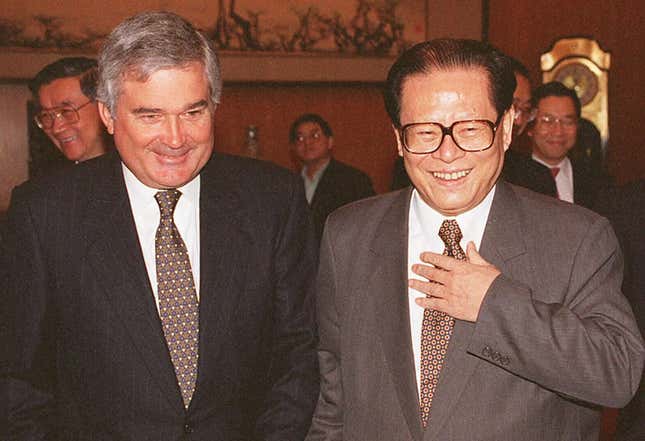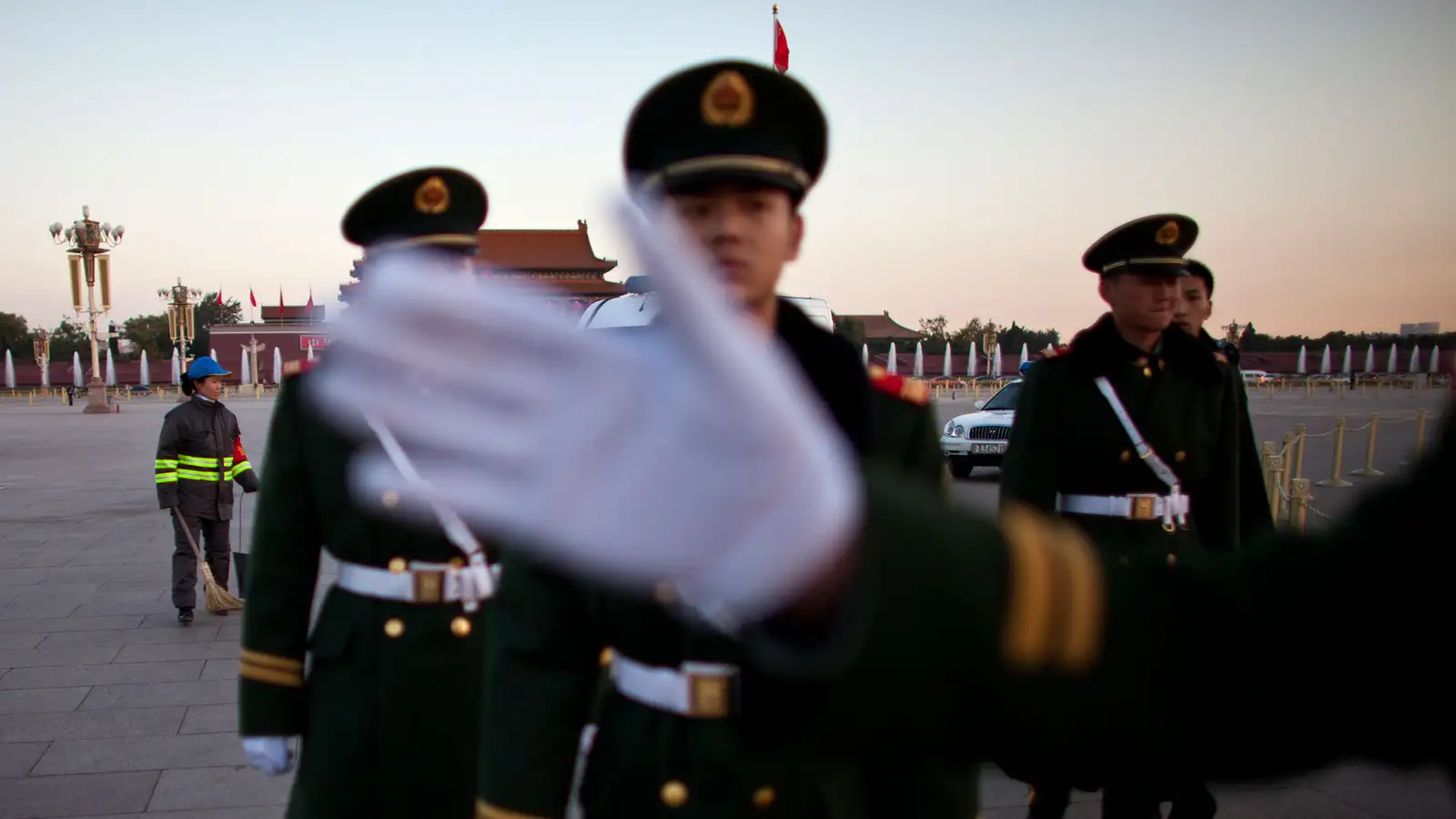BEIJING—China’s new leaders are due to be unveiled at this week’s Communist Party congress, and corporate strategists at multinationals are anxious to know their agenda. Will the people who will run the world’s most populous country for the next decade try to break up powerful state monopolies, or reinforce them? Will they free up more lending for private companies and create a more level playing field for Chinese and foreign companies alike? Will the judicial system become more independent from the party? Or will economic reforms remain stalled, as in recent years?
But for some, the uncertainty is creating a growth industry. Alistair Nicholas, Asia-Pacific vice-president at the global public relations company Weber Shandwick, is pumping out daily analyses for clients on how to decipher the riddles that often punctuate political polemics here. And he anticipates busy months ahead, especially after the new government, expected to be led by current vice-president Xi Jinping, takes over the reins next spring. “I expect we’ll get a good number of people calling up and saying our CEO is coming in, and they want to have meetings with a minister for this or a minister for that.”
The problem, he says, is a lot of these CEOS are way out of date. “A lot come in with the idea we need to meet this minister, then our problems will be solved.” But that’s not the way (pdf) China works any more.

Ten years back, when Jiang Zemin was still China’s president, he’d meet with all sorts of foreign CEOs. In one case says Jim Gradoville, a former government-relations man at Motorola, his CEO was caught in a surreal chit-chat with Jiang about a theoretical engineering problem that had nothing to do with the company’s presence in China. The CEO didn’t happen to be an engineer.
Back then it was relatively easy for chiefs of large multinationals to get meetings with Chinese ministers. But these meetings slammed to a halt after Hu Jintao became president in 2003. Gradoville, who is also a former chairman of the American Chamber of Commerce in China, says, “Ten years ago the business community in Beijing… expected that after the first year or two the (new leaders) would consolidate their power, and then it would take off. Well, it didn’t happen. We got it wrong.”
Under Hu, China focused more on cultivating its own global champions. Multinational companies were increasingly kept at bay. Foreign investment wasn’t as much of a draw as it had been immediately after China joined the World Trade Organization in 2001.
Meanwhile, China started introducing more regulations, some of which created hurdles for foreign companies. Ministries took on more responsibilities, and companies found themselves in a tangle of relationships with government bureaucrats who had competing interests. Oftentimes, decision-making is opaque, and foreign companies are given little or no time to express their views.
Nonetheless, says Scott Kronick, president of Ogilvy Public Relations, North Asia, “All of the reform policies that have taken place have also forced China to be more responsible in the way it does things.” Kronick, who’s been in China for 18 years, has seen the arm of his business that advises companies on government outreach expand “exponentially”.
But Chinese officials have a widespread distrust of the motives of foreign companies. The key, say government-relations practitioners, is to show the company is a good corporate citizen, and can help China achieve its policy goals.
Among the global players that have been building up their teams in China is public affairs consultancy APCO Worldwide. “You need to be out there mixing it up with people who can influence policy, and be continuously talking to them and letting them know why you deliver mutual benefit,” says the managing director of APCO in Beijing, Greg Gilligan. He advises foreign businesses to get their message to key players in the state-driven economy—industry associations, think-tanks and professors who consult on government policy and media, including social media. The old tactic of downing tiny thimble-sized glasses of fiery baijiu alcohol is out. Schmoozing at industry conferences and working Weibo, the popular Chinese social media, are in.
Though there is no formal lobbying system as in the US, there are tactics foreign companies can use to push their agendas and curry favor with officials. One is to share the company’s know-how on hot-button issues. For example, in the wake of a slew of food safety scandals, expertise on food safety testing is useful for a government trying to enforce reams of new regulations. Other companies help train ministry officials in how to speak to the media. Weber Shandwick often advises clients to start off with issuing a white paper on an industry issue, making a speech at a conference where the relevant minister or senior officials may be present, and then seeking meetings with them.
Nicholas says once Xi Jinping’s government gets settled, he expects to be helping a lot of companies travel this circuitous root to getting themselves into decision-makers’ offices. Unless, of course, 2013 turns out to be like 2003, and the rules all change again when Xi Jinping takes control.
Jocelyn Ford is a freelance journalist and film-maker based in Beijing who has spent three decades reporting from Asia. Her latest film is Zanta.
